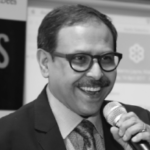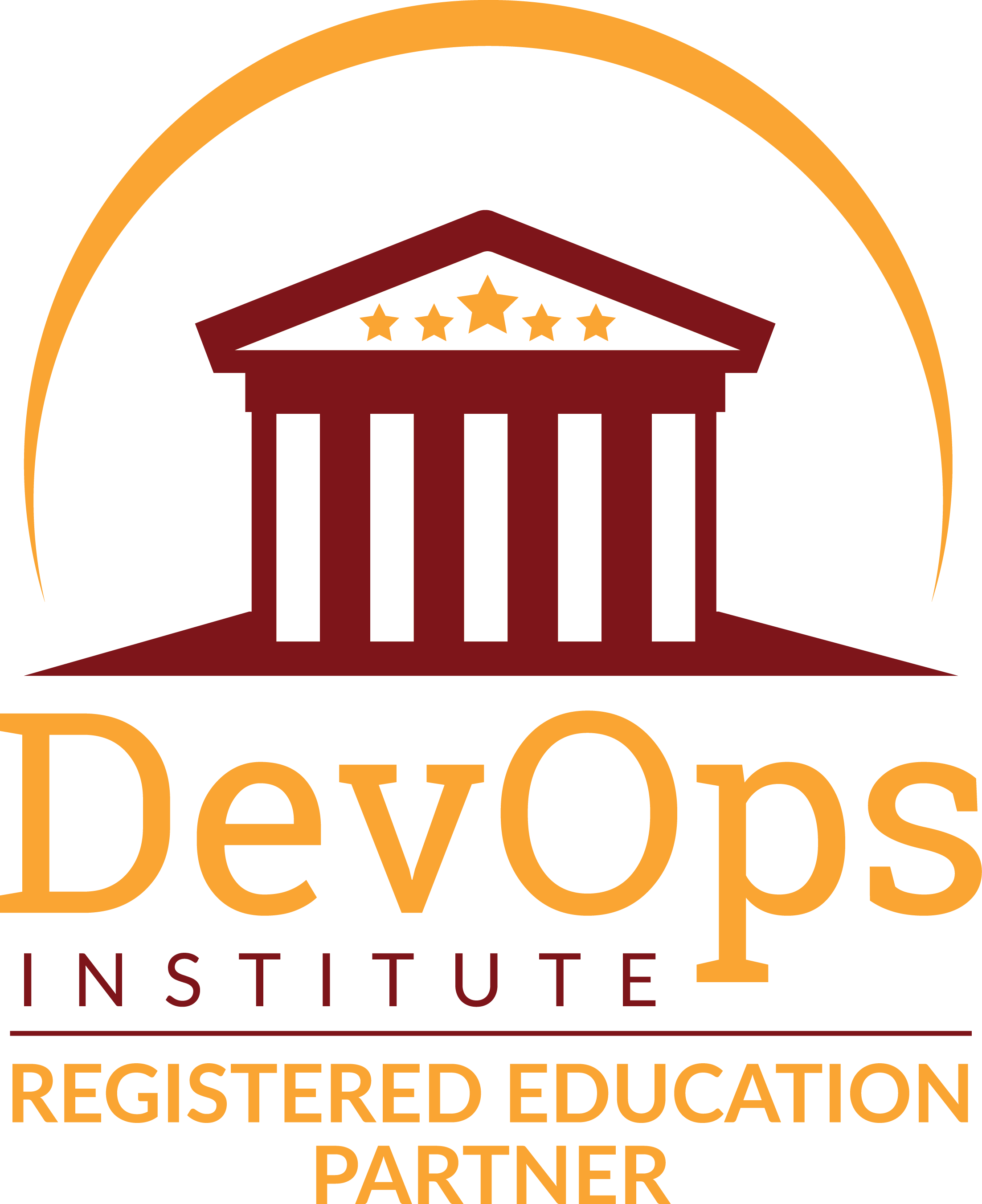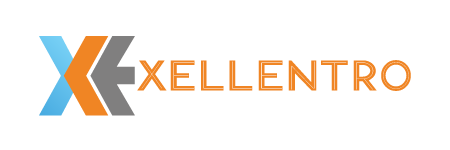CONTINUOUS DELIVERY ECHOSYSTEM FOUNDATION CERTIFICATION PROGRAM Virtual
Event Information
OVERVIEW
Continuous Delivery Ecosystem Foundation℠
Training Format : Virtual Instructor-Led Training | Course Duration - 16 Hours | Weekday Batch
OVERVIEW
Continuous Delivery Ecosystem Foundation℠ being a certification from DevOps Institute is designed for the participants engaged in the design, implementation, and management of DevOps deployment pipelines and toolchains that support Continuous Integration, Continuous Delivery, Continuous Testing and, potentially, Continuous Deployment. This course is also involved in defining or integrating underpinning processes, metrics, APIs, and cultural considerations with Continuous Delivery.
The Continuous Delivery Ecosystem Foundation course endows the IT professionals along with the broader competencies required in architecting and organizing valuable and useful automated deployment pipelines.
The learning objectives for Continuous Delivery Ecosystem Foundation (CDEF) include a practical understanding of:
The principles of Continuous Integration and Continuous Deployment
Continuous Delivery vs. DevOps Continuous Integration practices
Extending Continuous Integration to Continuous Deployment
Principles for architecting a deployment pipeline
Engaging Ops in Continuous Delivery
Testing and continuous delivery
Security and continuous delivery
Continuous deployment and automated release
Cultural and people consideration
Well architected continuous delivery pipelines producing improved business results
Highly visible role positions for career advancement in organizations
Increased velocity to help organizations to respond to market changes quickly, thus being able to outmanoeuvre competition, lessen risk and lower costs while releasing higher quality solutions
Continuous Delivery Architects are in necessity by all companies executing a digital transformation
Faster software release processes for the organizations
Enhanced productivity and employee morale by having more activities performed by pipelines
Each learner will be provided digital access to the "Continuous Delivery" eBook and LiveLessons videos. The course materials will also include practical artifacts, templates, and lexicons collected by the author, Marc Hornbeek to assist learners post-class.
This certification positions learners to successfully complete the Continuous Delivery Architect exam.
COURSE OBJECTIVES
The learning objectives for CDA include a practical understanding of:
Goals, history, terminology, and pipeline
The importance, practices, and transformation of a DevOps collaborative culture
Design practices, such as modular design and microservices
Continuous Integration (Cl), such as version control, builds, and remediation
Tenets and best practices of Continuous Testing (CT)
Continuous Delivery and Deployment (CD): packaging, containers, and release
Continuous Monitoring (CM): monitoring and analysis infrastructure, process, and apps
Infrastructure and tools: frameworks, tools, and infrastructure as code
Security Assurance: DevSecOps
The opportunity to hear and share real-life scenarios
AUDIENCE
The target audience for the Continuous Delivery Architecture course is anyone interested in learning about the principles of Continuous Integration and Continuous Delivery, such as:
Build Engineers
Enterprise Architects
IT Managers
Maintenance and Support Staff
Operational and Infrastructure Teams
Project Managers
QA Managers
Release Managers and Engineers
Software Developers
Security Professionals
Testers
LEARNER MATERIALS
Sixteen (16) hours of instructor-led training and exercise facilitation
Digital Learner Manual (excellent post-class reference)
Participation in exercises designed to apply concepts
Sample documents, templates, tools and techniques
Access to additional sources of information and communities
CERTIFICATION EXAM
Successfully passing (65%) the 90-minute examination, consisting of 40 multiple-choice questions, leads to the candidate’s designation as a certified DevOps Continuous Delivery Architect (CDA). The certification is governed and maintained by the DevOps Institute.
COURSE OUTLINE
Course Introduction
Course goals
Course agenda
CDA Concepts
Continuous delivery (CD) definition
Architecting for continuous delivery
Continuous delivery and DevOps
Relationships between CD, Waterfall, Agile, ITIL, and DevOps
Benefits of continuous delivery
CDA Culture
Importance of culture to the CD Architect
What a CD Architect can do about culture
How to maintain culture
Assignment: DevOps culture and practices to create flow
Design Practices for Continuous Delivery
Why design is important to continuous delivery
CD Architect’s role in design
Key design principles
CD best practices
Microservices and containers
Continuous Integration
Continuous integration (CI) defined
CD Architect’s role in CI
Importance of CI
Benefits of CI
CI best practices
Assignment: Optimizing CI workflows
Continuous Testing
Continuous testing (CT) defined
Importance of CT
Benefits of CT
CD Architect’s role in CT
Five tenets of CT
CT best practices
Assignment: Handling environment inconsistencies
Continuous Delivery and Deployment
Continuous delivery defined
Continuous deployment defined
Benefits of continuous delivery and deployment
CD Architect’s role in continuous delivery and deployment
Continuous delivery and deployment best practices
Assignment: Distinguishing continuous delivery and deployment
Continuous Monitoring
Continuous monitoring defined
Importance of continuous monitoring
CD Architect’s role in continuous monitoring
Continuous monitoring best practices
Assignment: Monitoring build progress
Infrastructure and Tools
Importance of infrastructure and tools
CD Architect’s role in infrastructure and tools
Building a DevOps toolchain
Infrastructure/tools best practices
Assignment: identifying common infrastructure/tool components
Security Assurance
Importance of security assurance
DevSecOps and Rugged DevOps defined
CD Architect’s role in security
Security best practices
Assignment: Applying security practices
Capstone exercise
Identifying toolchain and workflow improvement
Summary
Additional Sources of Information
Exam Preparations
Exam requirements
Sample exam review
Trainer Profile
Niladri Choudhuri
Founder & CEO of Xellentro, ATO Working Group Member – Asia at AXELOS Global Best Practice

Niladri has 27 years of IT consulting and training experience across a range of verticals and technology. He has strong experience in managing large global projects and programs setting up from scratch various practices for BI/DW, Project Portfolio Management, etc.
He has been providing training and consulting to large organizations across the world on Project Management, Portfolio Management, Agile, DevOps, IT Service Management, etc.
He is the first person to be DevOps Test Engineer Certified and Accredited by DevOps Institute in India and second in the world.
He is also accredited by G2G3 for their DevOps Simulation.
Prior to his entrepreneurial start with Xellentro, Niladri worked with Satyam, PwC, ITC Infotech, etc.,in various capacities. His last assignment was with Satyam as Practice Leader for Portfolio, Program and Project Management Practice.
Full Profile | LinkedIn Profile
Training Provider
Registered Education Partner


Townhall Learn More

